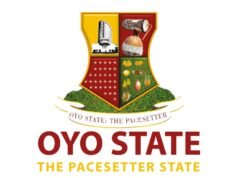Pursuing a master’s degree in Brazil can be an attractive option for students around the world, thanks to the country’s renowned universities, vibrant culture, and affordable education. Cheap schools and universities in Brazil offer competitive programs across a wide range of disciplines, making it a popular destination for postgraduate education.
In this blog post, we’ll explore some of the top institutions in Brazil that offer master’s degrees at relatively low fees, providing an excellent return on investment for your educational pursuits.
Read Also: Fully Funded Angola Scholarships 2024/2025
Criteria For Master’s Degree In Brazil
Table of Contents
When considering pursuing a master’s degree in Brazil, it’s essential to understand the specific requirements and criteria that may vary from one university to another. here are some common criteria for pursuing a master’s degree in Brazil:
- Educational Qualifications:
-
-
- Prospective students should typically hold a bachelor’s degree or its equivalent from a recognized institution.
- Some master’s programs may have specific undergraduate degree requirements based on the field of study. For example, a master’s in engineering may require a bachelor’s degree in engineering or a related field.
-
- Grade Point Average (GPA):
-
-
- Many universities in Brazil require a minimum Grade Point Average (GPA) for admission to master’s programs. The minimum GPA may vary depending on the university and the specific program.
- Prospective students should aim to maintain a competitive GPA throughout their undergraduate studies to meet the admission requirements.
-
- Proficiency in Portuguese:
-
-
- Since Portuguese is the primary language of instruction in most universities in Brazil, proficiency in Portuguese is typically required for admission to master’s programs.
- International students may need to demonstrate their Portuguese language proficiency by providing scores from standardized tests or by completing language proficiency courses.
-
- Entrance Exams:
-
-
- Some master’s programs in Brazil may require applicants to take standardized entrance exams such as the ENEM (Exame Nacional do Ensino Médio) or specific exams related to the field of study.
- The specific entrance exam requirements may vary depending on the university and the program of study.
-
- Letters of Recommendation:
-
- Prospective students may be required to submit letters of recommendation as part of the application process. These letters typically come from professors, employers, or other individuals who can attest to the student’s academic or professional abilities.
Prospective students should diligently prepare their applications and research each university’s specific requirements to maximize their chances of admission.
Cheap Schools and Universities in Brazil for Master’s Degrees and Their School Fees
When it comes to finding an affordable university in Brazil, some of the most popular options include:
1) University of São Paulo (São Paulo)
With a reputation that extends well beyond the borders of Latin America, USP is a cornerstone of academic rigor and innovation. The university’s sprawling catalog spans a multitude of disciplines, catering to a broad spectrum of scholarly interests from engineering and the natural sciences to humanities and health sciences.
One of the most compelling features of USP is its commitment to providing accessible education. As a public institution, it eliminates the barrier of tuition fees for its graduate programs, requiring only nominal administrative charges.
- Estimated Tuition Fee: R$2,500
2) State University of Campinas (Campinas)
Renowned for its vigorous pursuit of academic excellence and innovation, Unicamp harbors a particularly strong suite in engineering, technology, and health sciences. This institution has carved out a niche for itself by encouraging a symbiotic relationship between research and industry, thereby fostering an environment where theoretical knowledge meets practical application.
Unicamp’s master’s programs are meticulously designed to meet the evolving needs of the global workforce, equipping students with both the theoretical understanding and practical skills necessary for their respective fields. The university’s commitment to cutting-edge research is evident in its numerous laboratories and research centers, which serve as incubators for new ideas and breakthroughs.
- Estimated Tuition Fee: R$650
3) Federal University of Minas Gerais (Belo Horizonte)
Recognized for its pioneering research and teaching in arts, humanities, and sciences, UFMG has established itself as a leading institution not only in Brazil but on an international scale. Its commitment to fostering an innovative learning environment is evidenced by its expansive research facilities and a vibrant academic community that encourages scholarly dialogue and collaboration.
UFMG’s approach to graduate education is characterized by its emphasis on interdisciplinary studies and its dedication to addressing contemporary challenges through research and innovation. The university’s master’s programs are designed to cultivate critical thinking, creativity, and practical skills, preparing students to excel in their chosen careers and contribute meaningfully to society.
- Estimated Tuition Fee: R$4,500
4) Federal University of Rio de Janeiro (Rio de Janeiro)
Known for its vibrant campus life and panoramic views, UFRJ offers a comprehensive range of master’s degree programs, spanning from the sciences and engineering to the arts and humanities. This diversity in academic offerings mirrors the dynamic and eclectic nature of Rio de Janeiro itself, providing students with a unique educational and cultural experience.
UFRJ is celebrated for its commitment to academic excellence and research innovation, housing state-of-the-art facilities and laboratories that enable students and faculty to push the boundaries of knowledge and discovery. The university’s strong emphasis on research is complemented by a faculty of esteemed scholars and professionals who guide students through rigorous curricula and mentor them in ambitious research projects.
- Estimated Tuition Fee: R$2,500
5) Pontifical Catholic University of Rio de Janeiro (Rio de Janeiro)
The Pontifical Catholic University of Rio de Janeiro (PUC-Rio) is a prestigious private institution that holds a distinct place in Brazil’s higher education landscape. Renowned for its rigorous academic programs and a strong emphasis on social justice and ethical development, PUC-Rio attracts students who seek not only academic excellence but also a commitment to societal betterment.
PUC-Rio distinguishes itself through its innovative approach to education, integrating traditional classroom learning with practical, real-world applications. This hands-on methodology ensures that students are well-prepared to meet the challenges of their future professions. Moreover, the university’s collaboration with international institutions enriches its curriculum and offers students unique global perspectives and opportunities.
- Estimated Tuition Fee: R$6,500
FAQS
How much does a Master’s degree cost in Brazil?
In Brazil, the cost of a master’s degree varies depending on the university and program, but typically falls between R$1,500 and R$5,000 per year (roughly $300 to $1,000 USD). However, some of the most prestigious universities in Brazil, such as the University of São Paulo, charge significantly more, with yearly tuition fees ranging from R$7,000 to R$15,000 (around $1,400 to $3,000 USD).
Which universities in Brazil are free for international students?
There are a few universities in Brazil that offer free tuition for international students, including the Federal University of Minas Gerais, the Federal University of Santa Catarina, and the Federal University of Bahia. However, it is important to keep in mind that while tuition is free, these universities do charge fees for administrative and other expenses, such as enrollment fees, registration fees, and library and medical service fees.
Is Brazil good for a Master’s degree?
Brazil can be a great choice for international students looking to pursue a master’s degree. The country offers a variety of high-quality programs at some of the most prestigious universities in Latin America. In addition to the opportunity to study at world-class institutions, Brazil also offers a vibrant culture, beautiful scenery, and a low cost of living.
How much does tuition cost in Brazil?
The cost of tuition in Brazil varies depending on the university and program of study, but on average, it ranges from R$2,000 to R$10,000 per year (around $400 to $2,000 USD). Public universities, which are funded by the government, tend to have lower tuition fees than private universities
How much is the student visa fee in Brazil?
The fee for a student visa in Brazil is currently R$190 (around $35 USD). This fee covers the processing of the visa application, which includes an interview at the Brazilian consulate. Once the visa is approved, the student must then pay a R$100 re-entry tax (around $19 USD) upon arrival in Brazil.
Conclusion
In conclusion, while Brazil offers numerous opportunities for pursuing master’s degrees at various institutions, determining the affordability of these programs requires careful consideration of several factors. Tuition fees can vary significantly depending on the institution, program, and residency status of the student.
Public universities generally offer more affordable options compared to private institutions, with tuition fees typically ranging from relatively low to moderate levels. Additionally, various scholarships, grants, and financial aid options may be available to help mitigate the cost of education for eligible students.









